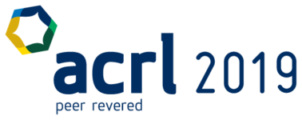| In 2011, our three-librarian instruction team undertook a comprehensive review and redesign of our online tutorial, with the goals of improving its curricular foundation, its technological underpinnings, and its sustainability, culminating in the “Teach Yourself” suite of instructional modules. This virtual poster presents our impetus for creating a new tutorial platform, the functional requirements we identified, and the features of our new framework. We also touch on evaluation and plans for future improvement. |

